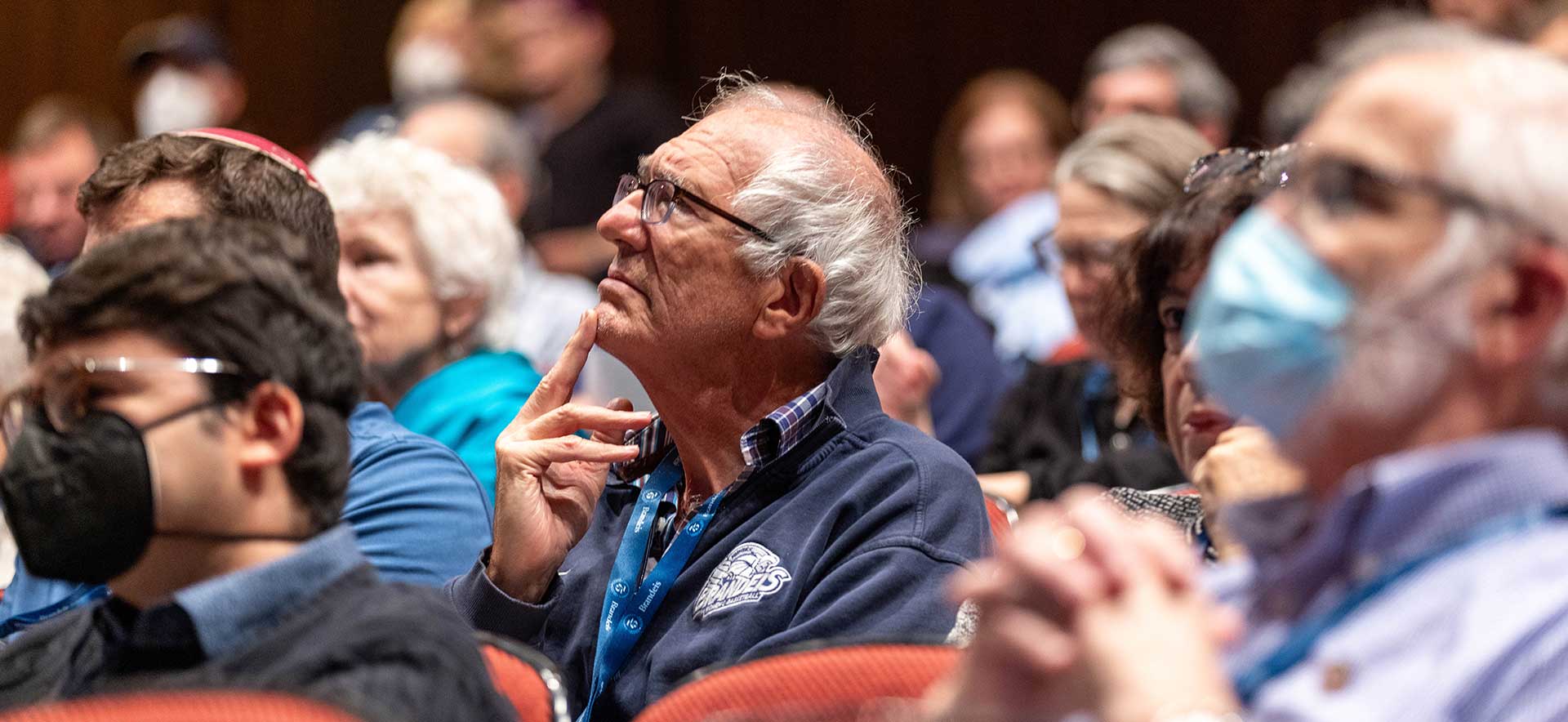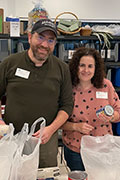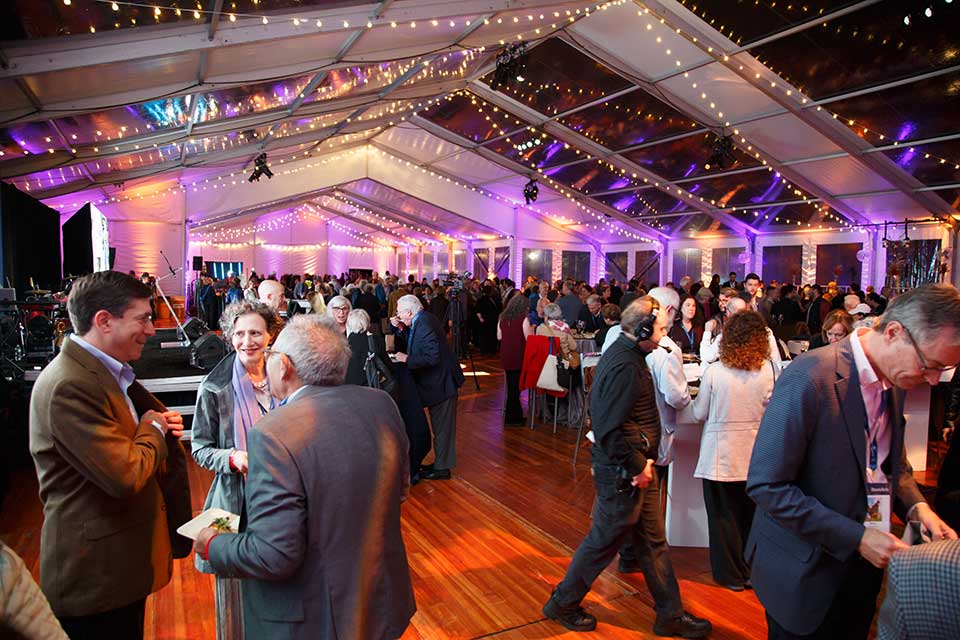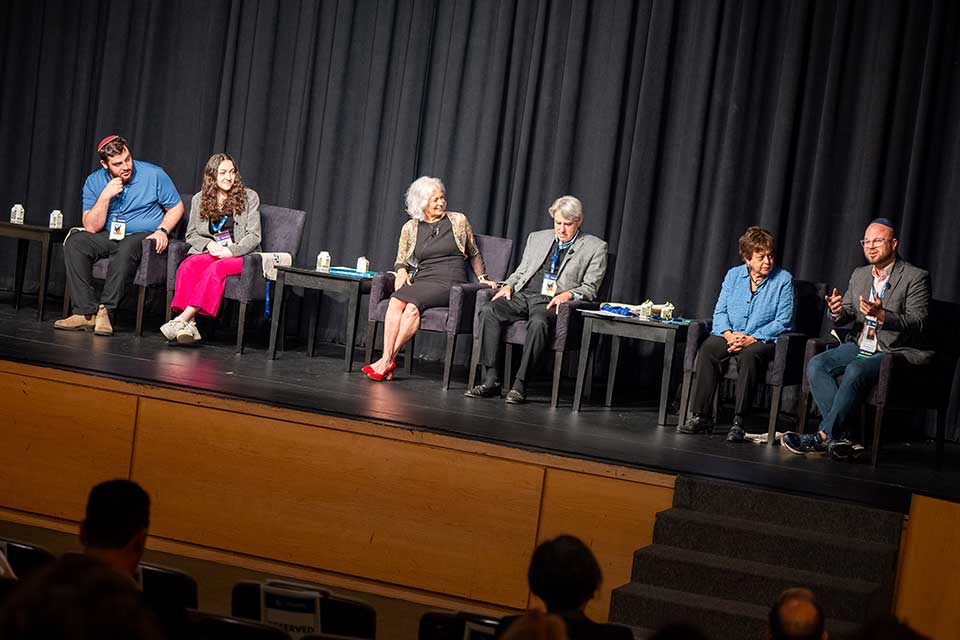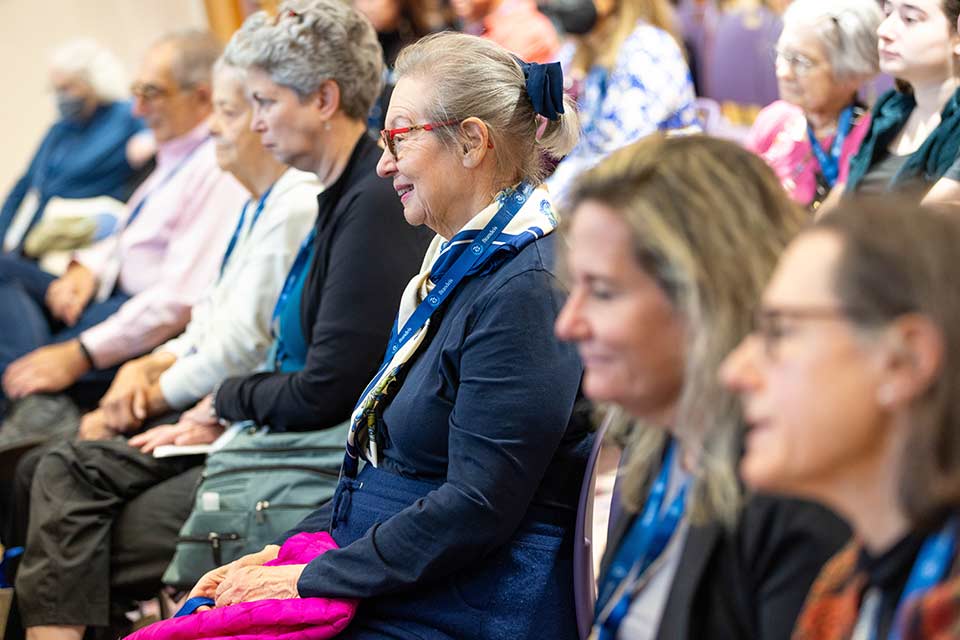The Future of American Jewry
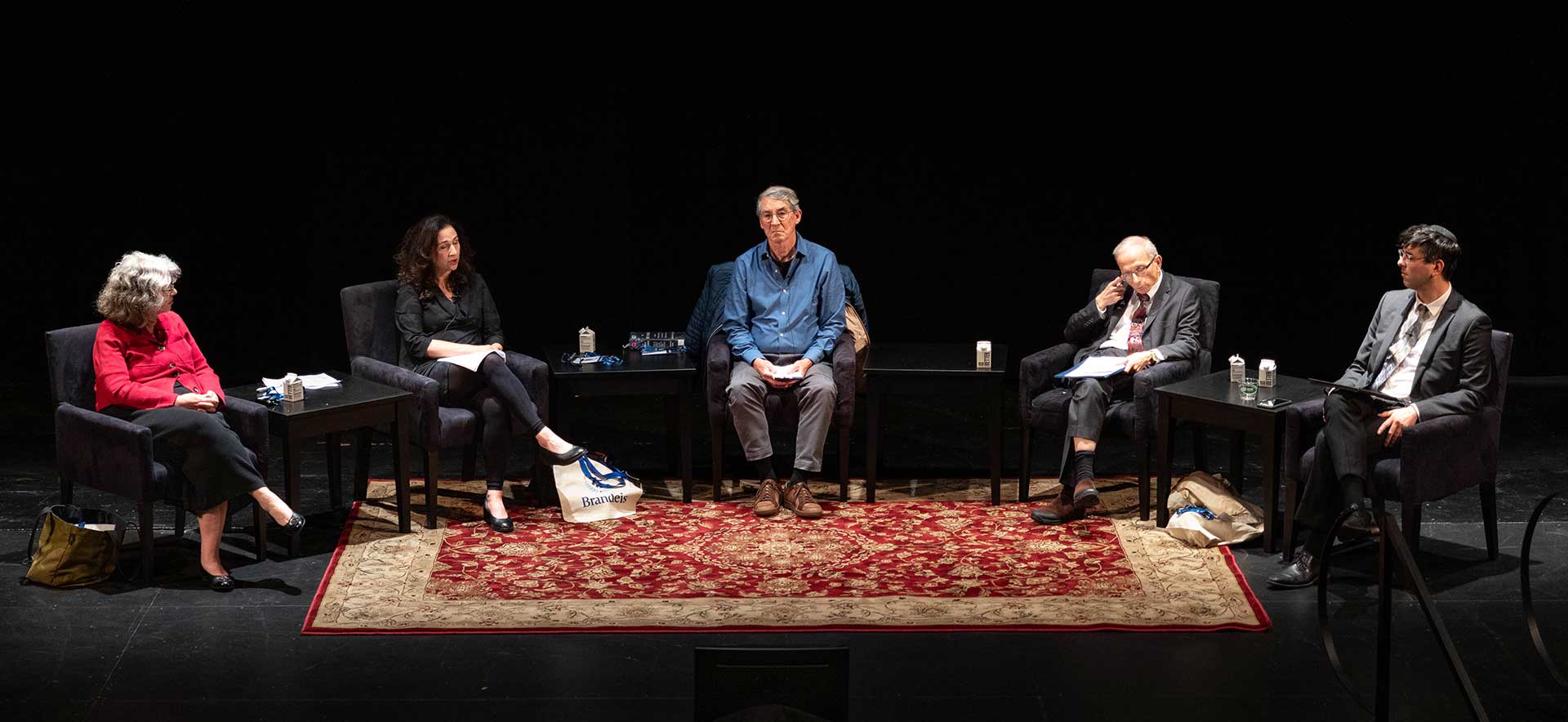
By Kennedy Ryan
Photography by Gaelen Morse
October 16, 2023
A group of esteemed Brandeis faculty in Jewish and Israel studies came together to discuss the future of American Jewry on Friday, but the event almost didn’t happen.
In the aftermath of the attack on Israel by Hamas and the beginning of a war in Gaza, the panel strongly considered canceling the event, which was part of Brandeis’ 75th anniversary celebration.
“We are all exhausted, emotionally overwhelmed, and as educators, we’ve also been busy supporting our students, speaking to the press,” said Alexander Kaye, the Karl, Harry, and Helen Stoll Assistant Professor of Israel Studies, Director of the Schusterman Center, and moderator of the event. “But we decided very quickly that cancellation was not an option. In our opinion, mourning and sadness and anger are emotions that have the effect of narrowing one's horizons, urging us to frantically do something. It’s very hard at times like this to think about the future at all, but it’s precisely at times like this we need to think of the future.”
“Even in the darkest times, we are confident if we invest in the education of our future generation, that it can help us deepen our understanding and lead moral, just lives.”
Kaye was joined by University Professor Jonathan Sarna ’75, GSAS MA’75, the Joseph H. & Belle R. Braun Professor of American Jewish History, Janet K. Aronson, associate director of the Cohen Center for Modern Jewish Studies and Steinhardt Social Research Institute, Professor Emeritus of Jewish Education Joseph Reimer, and Lisa Fishbayn Joffe, the Shulamit Reinharz Director of Hadassah-Brandeis Institute.
The event received sponsorship from the Department of Near Eastern and Judaic Studies, Hadassah-Brandeis Institute, the Schusterman Center for Israel Studies, the Jack, Joseph and Morton Mandel Center for Studies in Jewish Education, and the Cohen Center for Modern Jewish Studies.
The panelists shared their latest research and insights on current topics facing the American Jewish community, engaging with the Jewish community in a digital era, standing together in facing the devastating recent events in Israel, and the importance of creating a welcoming community that embraces and celebrates diversity.

“It really has to do with letting go of some fears. Fears about change, fears about conflict, fears about conflict within us, differences,” said Aronson. “Every single member of the Jewish community is a valuable soul. We need everyone. Every time we put up a line that says, ‘you are not welcome here,’ whether it's because you can't afford it or because of the way you look, or your disability, or your level of knowledge, or the way you practice Jewish life. I fear we're doing a great injustice to the Jewish community.”
“If we look back in history we can see that we have always been an ethnically diverse community,” said Fishbayn Joffe. “We can also listen to the narratives of contemporary Jews of Color and what it means for them to be welcomed into the Jewish community in synagogues and spaces.”
In a digital age of Zoom and virtual meetings, audience members found that members of the synagogue continued to opt for online meetings, resulting in lower attendance rates.
“I’m worried about the lack of Jewish connection at a human level,” said Reimer. “The fact that we live so much of our lives online is also a problem for me. There is power in a ritual celebration when it is peer oriented and joyous.”
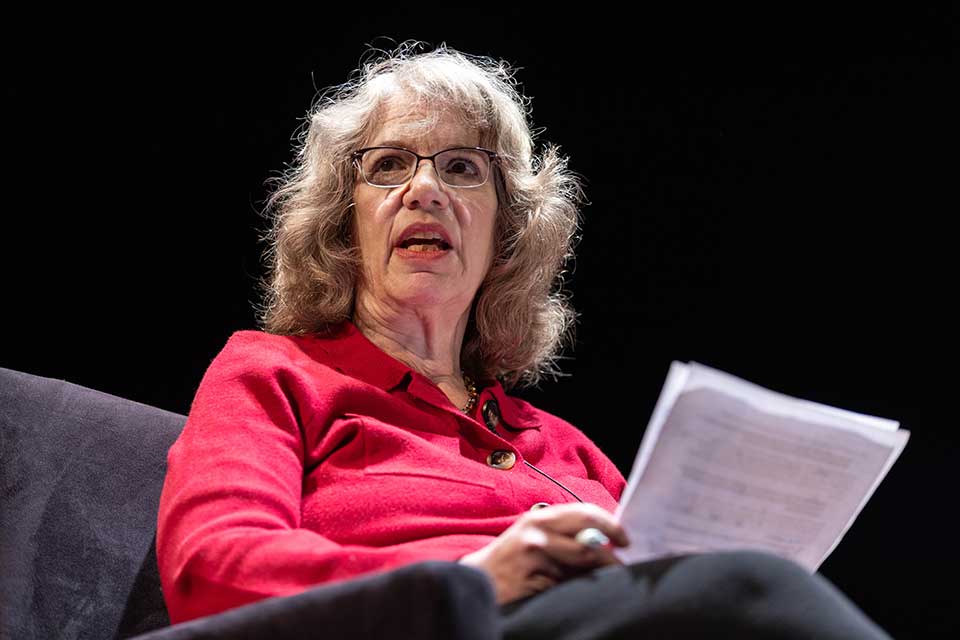
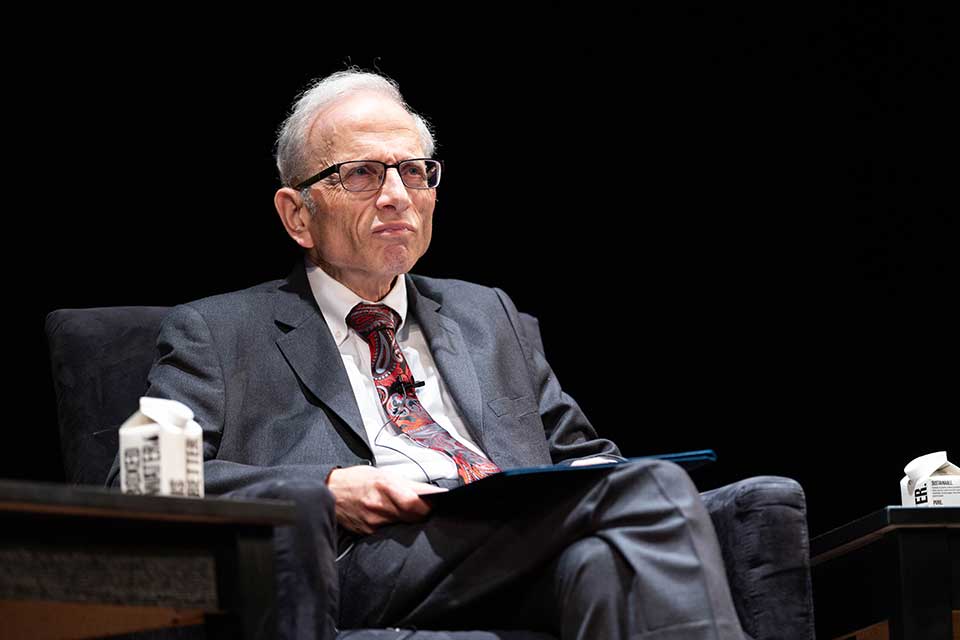
Aronson has recently researched the effects of the pandemic on the Jewish community.
“It’s not a replacement, but a substitution,” Aronson said. “I would challenge synagogues to think about what the benefits are of coming in person that they can’t get at home. Make them feel like they’re missing out during services.”
Despite the concerns surrounding the digital era, University Professor Jonathan Sarna sees some upside to the digital age.
“Yesterday, we had a gathering to talk about the (Israel-Hamas) war. I asked the students, ‘how many of you have been in touch with someone in Israel over the last week?’ Almost every hand went up,” said Sarna. “I was a student here during the Yom Kippur War. We couldn’t be in contact with Israelis, with friends, with the same ease. That is really just one example of one of the greatest revolutions that, really, I think has reshaped the Jewish world in our time.”
